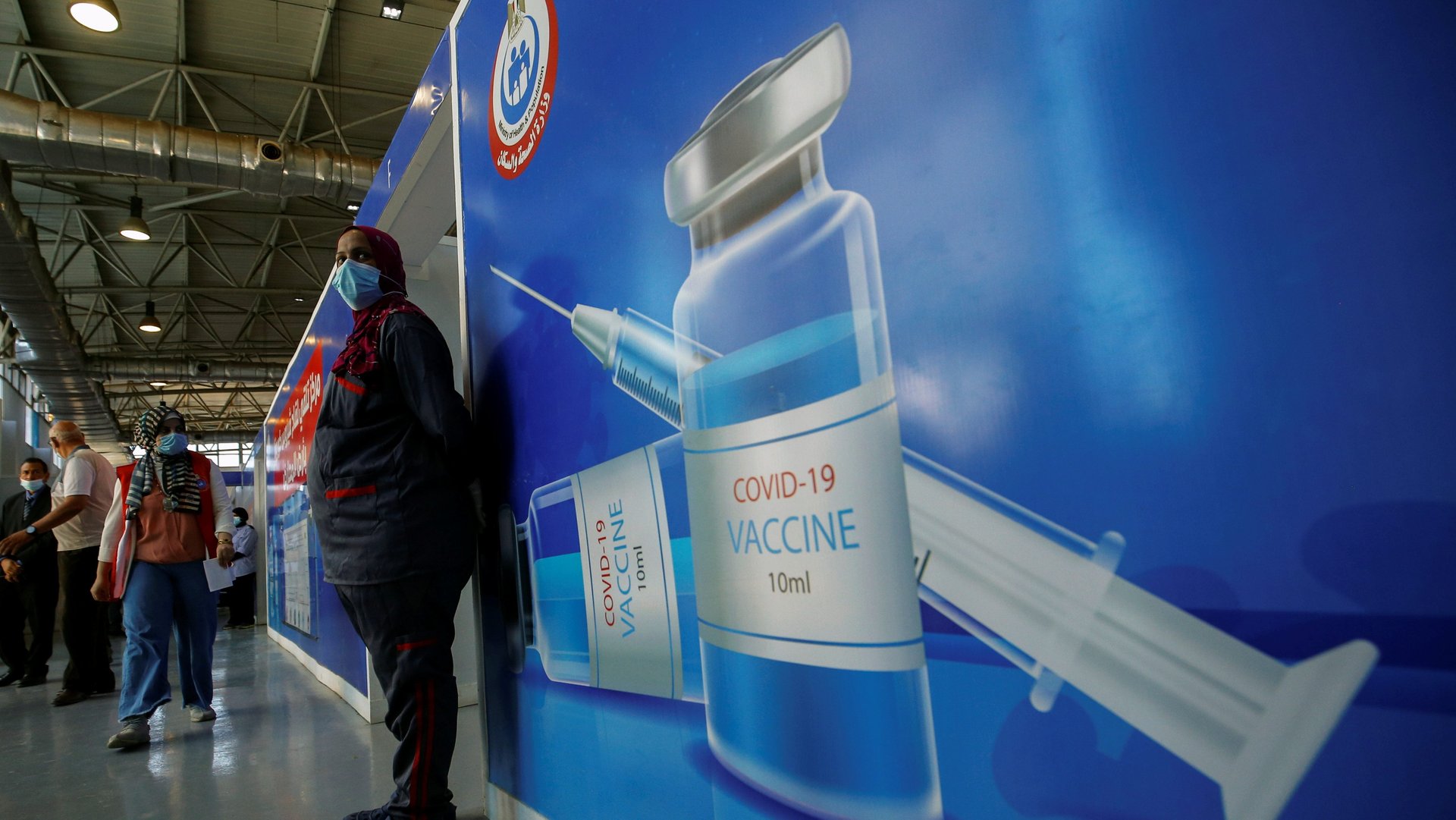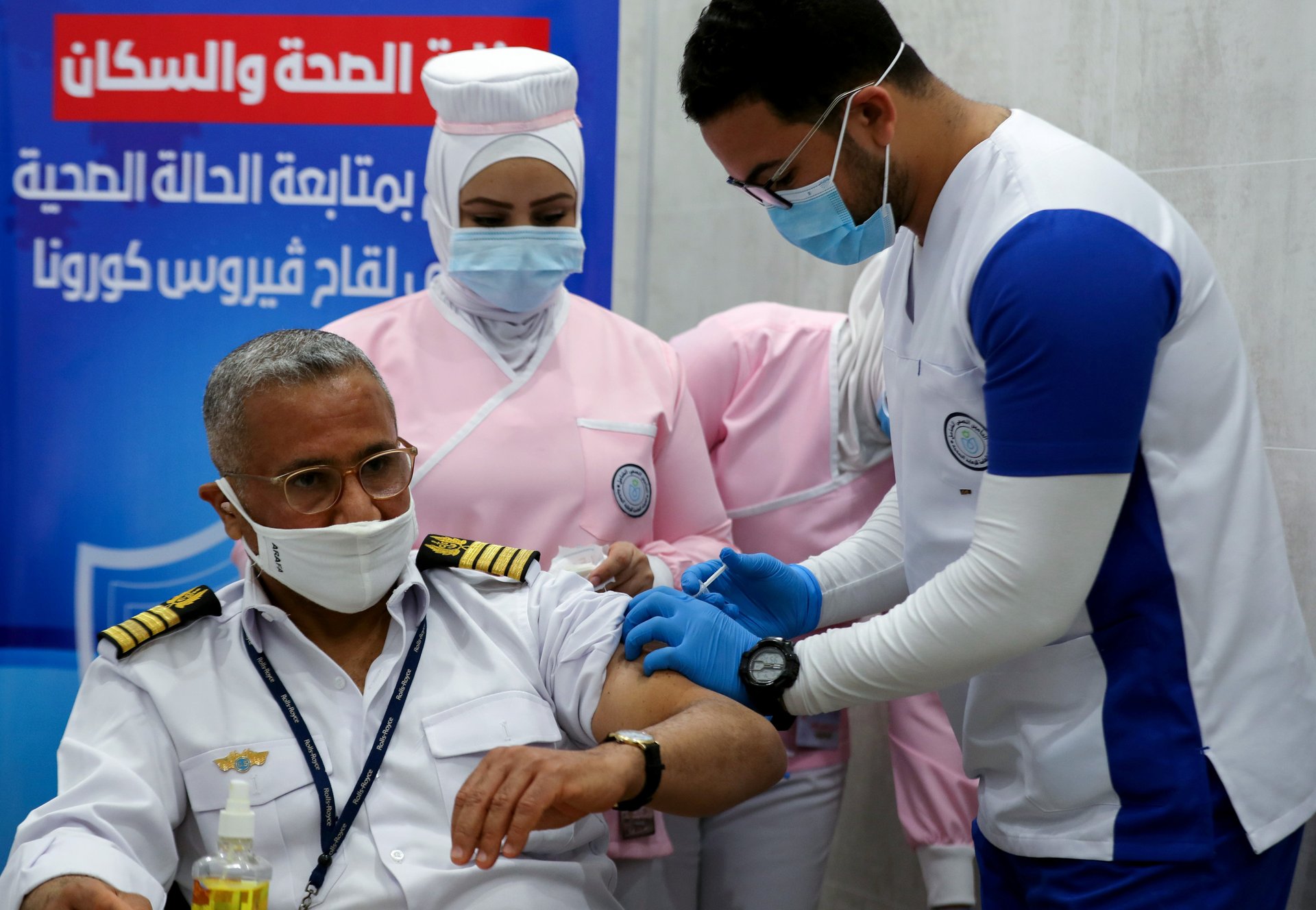Egypt joins the race to produce critically-needed Covid-19 vaccines for Africa
After several months of working with China, Egypt is close to producing the first Chinese Covid-19 vaccine manufactured in Africa. It has received the first batch of the raw materials to make the shot, called Sinovac-Vacsera, and announced it will start producing the vaccine in June, according to Egyptian local media.


After several months of working with China, Egypt is close to producing the first Chinese Covid-19 vaccine manufactured in Africa. It has received the first batch of the raw materials to make the shot, called Sinovac-Vacsera, and announced it will start producing the vaccine in June, according to Egyptian local media.
Successfully manufacturing the vaccine will make Egypt only the second country in Africa to manufacture a Covid-19 vaccine. In April, South African company Aspen Pharmacare started manufacturing the Johnson & Johnson Covid-19 vaccine in its facility in the coastal city of Gqeberha (formerly Port Elizabeth).
The development in Egypt marks a significant step in a push to increase Africa’s ability to produce vaccines locally, as opposed to importing treatments from abroad.
Egypt’s experience with viruses
The Egyptian Holding Company for Biological Products and Vaccines (VACSERA) reportedly received 1,400 liters of vaccine components from China in late May. These will be used to manufacture an initial 2 million doses of the Sinovac-Vacsera vaccine.
The country aims to vaccinate 40% of its population against Covid-19 by the end of 2021. It is expecting to manufacture 40 million Sinovac-Vacsera doses in the first year of production. Egyptian health minister Hala Zayed reportedly said 5 million doses of the vaccine will be produced in two months, and the vaccines produced will be exported to other countries in the Middle East and Africa after the country has met its own needs.
Egypt has recorded more than 261,666 coronavirus cases. Only 2.3% of its population has gotten their first dose of a coronavirus vaccine.
“It is a great promotion in the field of mass vaccine production [in Africa], ” says Dr. Aly Fahmy Mohamed El-Sayed, the former head of research and development at VACSERA.
The Sinovac-Vacsera vaccine production arrangement will take place in two phases, he explained. The first will focus on “downstream production,” that is, the preparation of vaccine from the bulk concentrates imported from China. The second phase will see the production of the vaccine from scratch. “VACSERA will start phase one using concentrated bulks to be reconstituted, and dispensed in glass vials, and may share part of the formulation,” El-Sayed said.
This second phase takes Egypt’s work further than the manufacturing being done by Aspen in South Africa, which is involved only in the downstream production of the Covid-19 vaccine, with the active substance used for making the Johnson and Johnson Covid-19 vaccine manufactured overseas.

Egypt is one of the few countries in Africa with vaccine manufacturing capacity, and has significant experience dealing with viruses like polio, Rift Valley Fever, and rabies. But historically VACSERA, which is government-owned, has focused on late-stage production, such as filling vials with vaccines, and packaging the medicine for distribution.
“We have more than 50-years of experience in viral vaccine production, identification and preclinical experiences, and the laboratory facilities [needed], says El-Sayed. “Nowadays we have a high capacity filling lines that can share mass production for exportation. In addition, we have the private sector, that can share vaccine production as an investment.”
Another South African company, BioVac, is also exploring partnerships with a Covid-19 vaccine developer to produce the vaccine locally. The state-backed vaccine company won a deal to manufacture coronavirus shots for the US biotech company, ImmunityBio, which is conducting phase 1 vaccine trials in South Africa. BioVac plans to cover the entire manufacturing process of the vaccine from start to finish.
The Pasteur Institute of Dakar in Senegal has also agreed to collaborate with the Belgian biotech company, Univercells, to package and distribute vaccines they produced in Belgium by early next year, according to Reuters. The institute has been manufacturing yellow fever vaccines from start to finish since 1962, and the vaccine is prequalified by the World Health Organization (WHO). However, the full production of the Univercells vaccine in Senegal is only planned for the second half of 2022.
Increasing vaccine access in Africa
The Sinovac vaccine was recently approved by the WHO for emergency use. This makes it the second Chinese vaccine after the Sinopharm vaccine to be approved and eligible for the Covax facility—a global coalition working to ensure equitable access to vaccines for poor countries.
Most African countries are relying on Covax for Covid-19 vaccines. The addition of the Chinese vaccines to Covax will give the scheme more vaccine options, a critical move given that the Serum Institute India, the major supplier of doses to the scheme, has stopped vaccine exports due to a surge of cases at home.
According to the WHO, only 31.4 million doses have been administered in 50 countries on the continent. While 24% of the global population have been vaccinated, only about 2% of the African population have received at least one dose of a Covid-19 vaccine.
Though the manufacture of vaccines in Africa will result in increased access, experts say the most important benefit for the continent is the technology that is transferred to the continent in the process.
“A bigger factor would be access to the technologies through partnerships,” says Patrick Tippoo, the head of Science and Innovation at Biovac, and the executive director of the African Vaccine Manufacturing Initiative (AVMI). He believes Egypt’s additional manufacturing will help build Africa’s capacity, but whether it will improve access “would depend on the terms and conditions of the partnership between Egypt and Sinovac.”
The vaccine agreement between China and Egypt reportedly covers the transfer of production and manufacturing technology to enable Egypt to produce Covid-19 vaccine from start to finish locally in the future. This involves a delegation of Chinese experts working with VACSERA in Egypt for three weeks to produce the first batch of the vaccine.
Some countries, including South Africa, have been agitating and negotiating at the WTO for IP waivers on Covid-19 vaccines to allow more pharmaceutical companies to manufacture the vaccines for increased access. This move has been opposed by wealthy countries and most recently, the World Bank.
Sign up to the Quartz Africa Weekly Brief here for news and analysis on African business, tech, and innovation in your inbox.